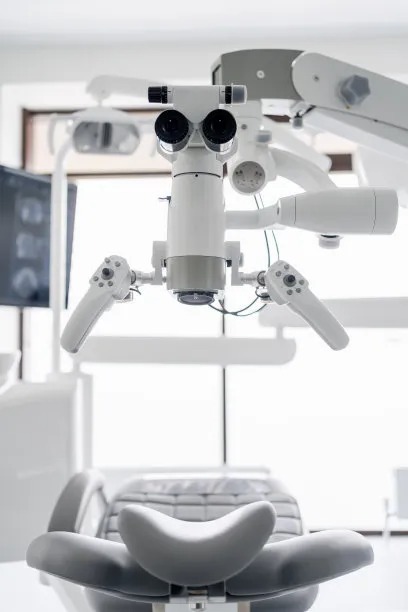Summary: This article delves into the crucial connection between periodontal disease and overall health, emphasizing how oral health significantly impacts wellness and preventive care. The exploration is divided into four key aspects: the relationship between periodontal disease and systemic diseases, the impact on mental health, the importance of preventive care, and practical strategies for maintaining oral health. By understanding these connections, individuals can enhance their overall wellness and prioritize preventative measures to mitigate the risks associated with periodontal disease.
1. Link Between Periodontal Disease and Systemic Diseases

Periodontal disease is not just an oral health issue; it has profound implications for systemic health. Research has established a clear correlation between periodontal disease and various systemic conditions, including cardiovascular disease, diabetes, and respiratory illnesses. When oral bacteria enter the bloodstream, they can contribute to inflammation and enhance the risk of these diseases.
For example, individuals with periodontal disease are at a higher risk of developing heart disease due to the inflammatory response triggered by oral pathogens. This connection highlights the importance of maintaining good oral hygiene to mitigate potential cardiovascular risks.
Moreover, diabetes and periodontal disease have a bidirectional relationship. Those with diabetes are more susceptible to infections, including periodontal disease, while poor oral health can, in turn, affect blood sugar control. Recognizing this link is vital for healthcare providers and patients alike to work together towards comprehensive health management.
2. Impact of Periodontal Disease on Mental Health
The implications of periodontal disease extend beyond physical health, influencing mental well-being as well. Studies have shown a significant relationship between oral health and mental health issues, such as anxiety and depression. The discomfort and embarrassment associated with periodontal disease can lead to decreased self-esteem and social isolation.
Moreover, chronic pain from periodontal conditions can exacerbate feelings of anxiety and depression. The constant presence of oral health issues can create a cycle where mental health problems worsen, subsequently affecting a person’s ability to maintain good oral hygiene, further deteriorating their dental health.
Addressing the mental health impact of periodontal disease is crucial for a holistic approach to wellness. By promoting awareness and providing support for individuals dealing with these overlapping issues, we can create a more comprehensive health support system.
3. Importance of Preventive Care in Oral Health
Preventive care plays a vital role in combating periodontal disease and maintaining overall health. Regular dental check-ups and cleanings enable early detection and intervention of periodontal issues. These appointments allow dental professionals to identify signs of gum disease before they progress, ensuring timely treatment and better health outcomes.
In addition to professional dental care, individual preventive measures—such as maintaining a rigorous oral hygiene routine—are essential. Brushing twice daily, flossing regularly, and using antimicrobial mouthwash can significantly reduce the risk of developing periodontal disease.
Furthermore, education on proper nutrition and its role in oral health is crucial. A balanced diet rich in vitamins and minerals supports immune function and oral tissue health, directly impacting one’s periodontal status. By prioritizing preventive care, individuals can significantly enhance their wellness and reduce the likelihood of both oral and systemic diseases.
4. Strategies for Maintaining Optimal Oral Health
To effectively manage and prevent periodontal disease, individuals should adopt a multifaceted approach to oral health. Firstly, regular dental visits are essential for professional cleanings and assessments. Dental professionals can provide tailored advice and treatment plans based on individual needs.
Secondly, personal oral hygiene routines should include proper brushing techniques and the consistent use of dental floss. Education on the importance of these practices can empower individuals to take charge of their oral health and recognize the warning signs of periodontal disease early.
Lastly, promoting a healthy lifestyle that includes smoking cessation, regular exercise, and a balanced diet will contribute positively to both oral and overall health. Community awareness and support can also play significant roles in enhancing health outcomes by encouraging individuals to prioritize their oral hygiene.
Summary:
In essence, the intricate relationship between periodontal disease and overall health underscores the importance of maintaining good oral hygiene and seeking preventive care. By understanding how oral health impacts systemic diseases, mental health, and wellness, individuals can take proactive measures towards better health. The shared responsibility of patients and healthcare providers can pave the way for enhanced preventive care strategies, contributing to overall health and well-being.
This article is compiled by Vickong Dental and the content is for reference only.
Vickong Dental
Vickong Dental is a large medical group established in Hong Kong in 2008 by professors from well-known medical universities in Guangdong and Hong Kong, as well as medical doctors from key national '985' universities (including Master's supervisors and senior professors). The chain of branches brings together expert dentists with PhDs and Master's degrees from Hong Kong and Mainland China, committed to providing high-quality dental treatment.
"Vickong Dental Practices the University Motto of 'Healing and Serving Society,' with a Stable Operation for Sixteen Years. It Has Been honored with Hong Kong Enterprise Leaders's Choice,' and is a Global Trusted Implant Center for the Nobel Implant System. Recommended by Hong Kong Metro Broadcast and Guangdong Television, it Serves Customers from Over Thirty Countries and Regions, Gaining the Trust and Favor of Citizens from the Guangdong-Hong Kong-Macau Greater Bay Area and Surrounding Cities.

Thousands of customers' unanimous praise
The most recognized and highly recommended dental service by customers in the Guangdong-Hong Kong-Macau Greater Bay Area
We Ensure You Receive Detailed Care and Attention Here
Hong Kong standards, Shenzhen prices, Your Trusted English-speaking dentists

Vickong Dental Medical-Grade Instrument Disinfection Process
Vickong Dental Medical-Grade Instrument Disinfection Process

Vickong Dental Chain: A Warm and Comfortable Environment for Treatment






Appointment Hours

Q&A
Why choose Vickong Dental?
Vickong Dental practices the university motto 「Medicine to Benefit Society」, with each branch bringing together highly qualified dentists with doctoral and master’s degrees from Hong Kong and the Mainland, and has maintained seventeen years of steady operation。Recipient of 「2024 Hong Kong Enterprise Leaders Brand」, 「2025 Hong Kong Enterprise Leaders Brand」, a Nobel Biocare Global Trusted Implant Center, and a brand recommended by Metro Radio Hong Kong and Guangdong TV。
To date, we have served customers from more than thirty countries and regions,earning exceptionally high word-of-mouth recognition and trusted recommendations from residents across the Guangdong-Hong Kong-Macao Greater Bay Area and surrounding cities
We have eight major branches in Zhuhai、Shenzhen,and a consultation and service assurance center in Hong Kong,so you can book a free consultation at any time for any questions,which is very reassuring.
If I do not accept the quotation after the CT scan, will I be charged??
No! As long as the actual treatment has not started, you will not be charged any fees.
Will there be any additional charges during the treatment process?
No, there won’t be any additional charges. Before treatment begins, we will clearly explain the treatment plan and its corresponding fees. Only after the patient agrees and signs the consent form will we proceed with the dental service.
Can I pay in Hong Kong dollars?
Yes. Vickong Dental accepts payment in Hong Kong dollars. The amount will be converted based on the exchange rate of the day, and the applicable rate will be clearly communicated to you in advance.
Can I reschedule my appointment at any time?
Yes. Please contact us via **WeChat** or **WhatsApp** as early as possible, providing your original appointment time and details, along with your preferred new date and time slot for rescheduling.













